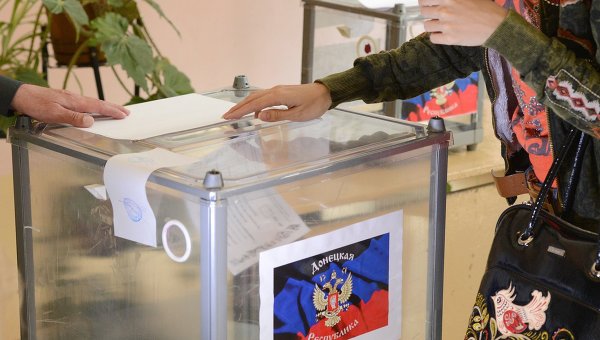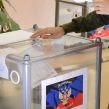
Moscow Juggling the Concept of Ukraine’s Territorial Integrity (Part Three)
Publication: Eurasia Daily Monitor Volume: 11 Issue: 224
By:

*To read Part One, please click here.
*To read Part Two, please click here.
In order to stimulate centrifugal processes in Ukraine, the Kremlin needs the Donetsk and Luhansk “people’s republics” to remain within Ukraine’s political system pro forma, albeit outside Kyiv’s control de facto. It also needs them to remain as two distinct entities at this stage, potentially to stimulate a “federalization” process based on Ukraine’s currently existing provinces.
At this point, as Ukrainian Prime Minister Arseniy Yatsenyuk observes, “Putin does not need the independence of the separatist republics in Ukraine’s east. On the contrary, he needs a frozen conflict that would enable the Kremlin to exert leverage on Kyiv’s policies” (Zerkalo Nedeli, December 15).
More mundanely, Russia wants Ukraine to bear, or share, the costs of humanitarian assistance and economic reconstruction of the “DPR-LPR.” These issues have moved to the forefront with the onset of winter and the ceasefire that has taken hold since December 9. Russia is currently dispatching the tenth in its series of humanitarian assistance truck convoys (all in violation of Ukraine’s sovereignty and borders). For its part, Kyiv seeks ways to provide humanitarian assistance to “DPR-LPR’s” population directly, without having to channel the assistance through the illegal authorities.
Ironically, Moscow is suddenly reminding Kyiv that the Russian-seized parts of Donbas (area encompassing eastern Ukrainian provinces of Donetsk and Luhansk) are parts of Ukraine after all. Having organized this territory’s separation, flooding it with regular and irregular troops, installing anti-Ukrainian political authorities, and depicting the Ukrainian government as criminal fascists on a daily basis, Moscow now wants that same Ukrainian government to support the economy of the Russian-controlled territory.
From Sergei Lavrov on down, impatiently and sometimes admonishingly, Russian officials are asking Kyiv to take responsibility for re-starting the “DPR-LPR’s” moribund economy. Since the conflict disconnected this territory from Ukraine’s banking system, Ukraine has halted the disbursement of salaries, pensions and other social payments through the banks there. In response, Moscow insists that Kyiv should keep that territory within Ukraine’s financial system; Moscow even reproaches Kyiv for pushing that territory out of the hryvna zone (Interfax, December 10–15).
Ahead of the next Contact Group meeting in Minsk, the Russian side proposes to shift the agenda from armistice-related issues toward economic and humanitarian relief issues. This would divert time and attention from addressing Russia’s noncompliance with major clauses in the armistice agreements (see below). Moscow looks set for success in this maneuver. Furthermore, Moscow may well come up with economic-humanitarian proposals reaching beyond Donbas itself.
The transportation of Russian supplies to the occupied Crimean peninsula across Ukraine’s territory remains an unresolved issue. This becomes more acute in winter when supply requirements grow while the Kerch Strait is prone to freezing. Russia can be expected to propose opening an overland supply route from the Ukrainian-defended Mariupol, along the Azov Sea coast to Crimea. It may package such a proposal together with arrangements for supplying the Russian-controlled parts of Donbas on a regular basis (the current arrangements using truck convoys are intermittent and unlawful). If Russia, moreover, is seriously interested in reviving the “DPR-LPR” economically, it must at some point ensure their access to the port of Mariupol; whether by seizing it unilaterally or by agreement on the terms of access and use with Ukraine’s government.
Russia now claims that the armistice agreements’ clauses should be implemented according to a certain sequence, in a serial order that Moscow purports to determine itself. During the Organization for Security and Cooperation in Europe’s (OSCE) year-end meeting in Basel, Russian Foreign Minister Sergei Lavrov declared, “The Minsk [armistice] agreements presuppose a certain sequence of implementing actions.” Lavrov listed the serial order as: recognition by Kyiv of the November 2 elections in “DPR-LPR,” enactment of a Ukrainian law on special status for those areas, re-establishment of economic links by Kyiv with those two “republics,” and a political dialogue between Kyiv and the two “republics’ ” leaders. When Kyiv will have taken all those steps, the matter of monitoring the Ukraine-Russia border can come up for discussion; but Kyiv will have to discuss it with the two “republics’ ” authorities [they and Russia control the Ukrainian side of the Ukraine-Russia border across a 400-kilometer sector]. (Interfax, December 5).
Russia’s foreign ministry chief spokesman, Aleksandr Lukashevich, has confirmed Lavrov’s words and sequencing. Lukashevich alluded to “a non-public [sic] understanding as part of the Minsk agreements” in this regard. (Interfax, December 11).
Ukrainian President Petro Poroshenko’s chief of staff, Borys Lozhkin (inside negotiator of the armistice agreements), rejects the notion of any secret understanding as part of the armistice agreements (Ukraiynska Pravda, December 16).
If Moscow’s unilateral re-interpretation prevails in the Contact Group (where Russia holds sway), it will no longer be possible to deny Russia’s full responsibility for the non-implementation of the armistice agreements in all of their points, except a much-delayed cessation of combat.




